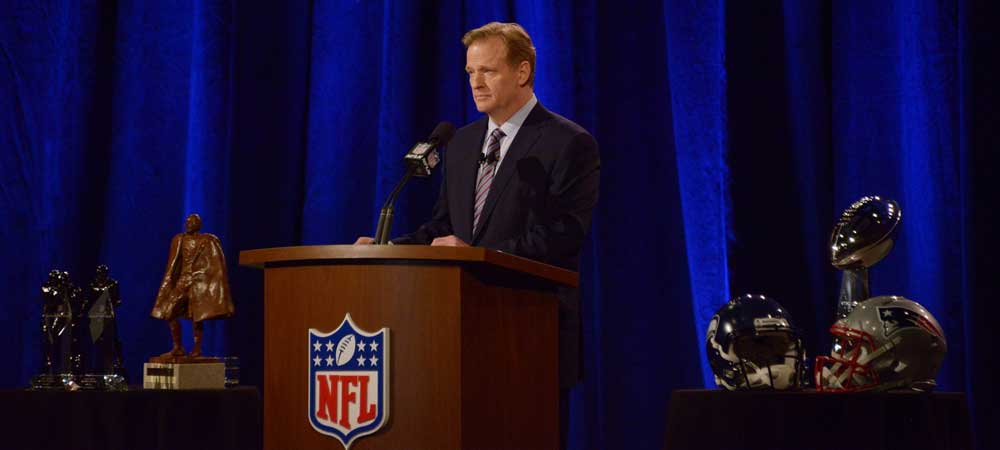- The four major North American professional sports leagues filed to dismiss a $150 million legal claim by the New Jersey Thoroughbred Horsemen’s Association (NJTHA) on Monday.
- Their claim is predicated on the fact that the leagues were responsible for an injunction on legal New Jersey sports betting from 2014 until 2018, when PASPA was overturned.
- The NJTHA’s case was already remanded by the Supreme Court, but a New Jersey district court could be more forgiving.
- If the NJTHA wins – which comes with very low odds – it could set a precedent that would force the sports leagues to pay similar settlements to other sports betting firms.
OCEANPORT, N.J. – On Monday, the four major North American sports leagues filed a motion to dismiss a claim by the New Jersey Thoroughbred Horsemen’s Association (NJTHA) that it is owed $150 million in damages after the Supreme Court filed an injunction to prevent New Jersey sports betting in 2014.
The gist of the NJTHA’s claim is that the sports leagues were responsible for that injunction and that it resulted in a loss of roughly $150 million in revenue between 2014 and May 2018, when the Supreme Court struck down PASPA and sports betting was legalized.
In late May, the Supreme Court read the NJTHA’s case but remanded it to a New Jersey district court without much consideration.
The leagues—MLB, NBA, NFL, and NHL— filed a motion for summary dismissal of the $150 million claim as well as an additional $3.4 million put up for bond to cover potential losses during those initial 2014 court proceedings.
The leagues contend that the NJTHA has not adequately proved that it is entitled to damages and that its claim has no legal basis.
This case is likely to end in the leagues’ favor but if the NJTHA wins a surprise judgment, it could open the door for other legal sports betting companies around the country to seek similar damages.
Outlook If The NJTHA Wins Their Case
The case for the sports leagues right now rests on the fact that there is no legal precedent for seeking financial damages for lost revenue from what was, at the time, an illegal enterprise.
The leagues are not so much fighting to avoid parting with the money—$3.4 million is a pittance for them and $150 million is barely an inconvenience—but to avoid setting a precedent.
If the Supreme Court rules in the NJTHA’s favor, it could be used as a legal precedent for other sportsbooks in other states to seek similar damages. Even if most of these cases went nowhere, they would result in a number of long, costly legal battles.
Most major sports leagues are already hurting financially because of the COVID-19 pandemic, so they would undoubtedly like to resolve this case as quickly as possible.
If court proceedings drag on too long, the leagues might consider an out-of-court settlement that would avoid setting legal precedent, although such a settlement could still act as an incentive for other sports betting companies to file similar claims.
The sports leagues’ case is helped by the claim of $150 million in lost sports betting revenues for the NJTHA’s Monmouth Park sportsbook.
In the 23 months since New Jersey launched legal sports betting, Monmouth Park has collected a total of $44 million in revenue and is on pace to collect slightly more than $80 million over its first 42 months—the same time frame as the claim for lost revenues.
While a ruling in the leagues’ favor seems very likely, this will still be an interesting developing case to monitor.
Advertising Disclosure
In order to provide you with the best independent sports betting news and content LegalSportsBetting.com may receive a commission from partners when you make a purchase through a link on our site.
News tags: Coronavirus | COVID-19 | MLB | Monmouth Park | Monmouth Park Sportsbook | NBA | New Jersey | New Jersey Thoroughbred Horsemen's Association | NFL | NHL | NJTHA | Supreme Court

With a dual background in English and sports performance and business analytics, Carter aims to write stories that both engage and inform the reader. He prides himself on his ability to interweave empirical data and traditional narrative storytelling. When he isn’t keeping readers up to date on the latest sports betting legal news, he’s banging his head against a wall regretting his decision to be a Tampa Bay Buccaneers fan.



 College Football Betting
College Football Betting Best Online Sports Betting
Best Online Sports Betting Best Legal NFL Betting
Best Legal NFL Betting States With Legal Sports Betting
States With Legal Sports Betting Sports Betting Events
Sports Betting Events




